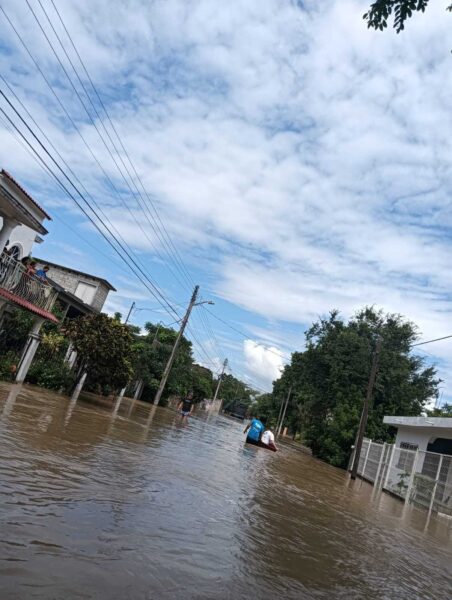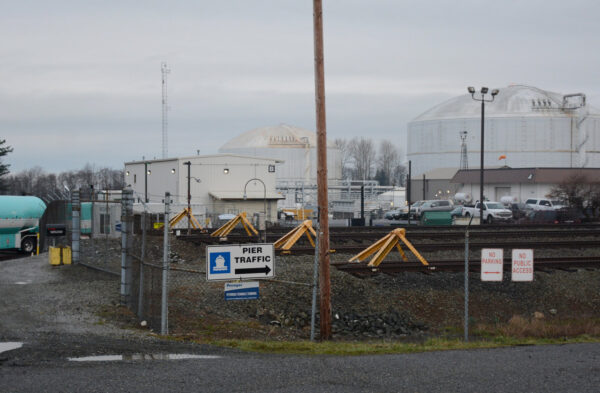Climate, environmental groups denounce state’s approval of permit for Goldendale Pumped Storage development that would permanently destroy sacred tribal cultural properties
May 22, 2023 (Klickitat County, WA)—The Washington State Department of Ecology (Ecology)
approved the water quality certification for the Goldendale Energy Pumped Storage
Hydroelectric Project, proposed by Rye Development and backed by Copenhagen Infrastructure
Partners (Rye). This is one of over a dozen permits the developer needs to build the
controversial project.
The development, proposed near the Columbia River in Klickitat County, Washington, would be
the largest of its kind in the Pacific Northwest.
The Confederated Tribes and Bands of the Yakama Nation (Yakama Nation) has opposed the
development since its inception because it would obliterate irreplaceable tribal cultural
resources, including archeological, ceremonial, petroglyph, monumental and ancestral use
sites. The Nez Perce Tribe, Confederated Tribes of Warm Springs, and Confederated Tribes of
Umatilla Indian Reservation also oppose the development due to impacts on Treaty-reserved
rights and cultural resources. Earlier this year, Affiliated Tribes of Northwest Indians, composed
of 57 tribal government members, and the National Congress of American Indians, the oldest
and largest organization representing tribal governments, passed resolutions on an emergency
basis for the protection of the site’s traditional cultural properties against development and to
urge federal and state regulators to deny the project permits.
Many of the nation’s and state’s leading climate and environmental organizations oppose the
development based on the significant impact to irreplaceable religious and cultural sites.
“Ecology’s decision is not the end of the road. The development flies in the face of Washington
state’s and the Biden administration’s obligations and commitments to honor Treaty rights and
consider environmental justice,” stated Lauren Goldberg, executive director for Columbia
Riverkeeper. “Yakama Nation and other Columbia Basin Tribes led efforts to combat the climate
crisis by preventing fossil-fuel infrastructure in the Pacific Northwest, and continue to lead efforts
to develop clean-energy infrastructure where it does not destroy sacred sites. We stand in
solidarity with Tribes in advocating for a just transition, which includes honoring Treaty rights.”
“A clean energy future must uphold federal trust and treaty obligations that consider the cultural
and health impacts of these projects on sacred sites. These parts of our identity – the land, the
roots, and the water – are a part of our collective history and we must not erase them,” said
Alyssa Macy (citizen of Confederated Tribes of Warm Springs, Oregon), CEO of Washington
Conservation Action. “We call on the State of Washington’s leaders to use its own evaluation
that affirms there is no way to mitigate or replace cultural and religious resources. We will
continue to stand with the Yakama Nation to protect their sacred land and firmly oppose this
project–if it harms Tribes, then it’s not clean energy.”
“Pumped storage is a critical tool in facilitating our transition to clean energy – however, the
current siting of this project reinforces the exploitation of our tribal neighbors and should have
been rejected,” said Sept Gernez, Acting Director of the Washington State Sierra Club. “In order
to ensure a truly just transition to clean energy and a healthy climate for all, we must transform
our social systems and structures from an exploitative economy to a regenerative society built
on sustainability and respect for the original stewards of this land. The Department of Ecology’s
decision comes at the expense of indigenous peoples – and demonstrates the need for
improvement in their tribal consultation practices and a greater respect for tribal sovereignty.”
“Electricity is a wonderous thing that runs our refrigerators and heats our homes, and yes, it’s
essential to keep the electricity on. Also yes, we need to retire emission-producing generation,
and yes again, pump storage technology is useful and has a place in the effort to move away
from fossil fuels. More important than peak supplies of electricity, though, is paying attention to
tribal knowledge of this particular place and how to live in it and with it, not exploit it,” said Pat
Arnold, Board Member of Friends of the White Salmon. “It is best for all of us to respect that
knowledge and wisdom, and to learn from it. That knowledge gives us many strong reasons
why this site should not be developed and further damaged. We oppose this project, and we
hope that discussions about siting energy projects generally will involve early and serious tribal
consultation.”
Ecology’s environmental review also concluded that the development would have effects on
golden eagles, little brown bats, smooth desert parsley and other rare plants without mitigation
measures.
Ecology previously denied without prejudice Rye’s application for 401 certification in June 2021.
There is a 30 day appeal process on Ecology’s decision.
#
Background:
The project area is within ceded Yakama Nation land and the area has historically been used by
the Yakama Nation, Confederated Tribes of the Umatilla Indian Reservation, the Confederated
Bands of the Warm Springs Reservation of Oregon, and the Nez Perce Tribe for hunting,
traditional gathering, fishing, camping, and traditional ceremonies.


